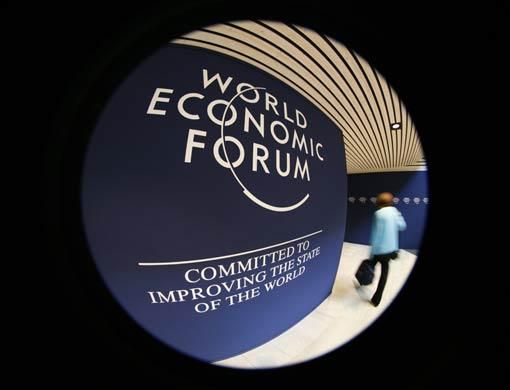Geneva: It's all business all the time for Davos this year.
With capitalism in crisis, the 2,500 business and political leaders at the World Economic Forum in Davos, Switzerland this week will find less starpower than usual - Bono is not coming, and neither is Angelina Jolie.
Organisers say the five-day event that starts tomorrow will focus on shaping the world after the crisis ends.
But with dozens of world leaders and finance ministers, and heads of the some of the world's biggest companies in attendance, this year's gathering may have trouble looking beyond the world's current economic problems. But the forum's head says they need to try.
"We are still in the midst of the crisis, let's face it," said Klaus Schwab, founder of the 39-year-old forum. "But we will look also at the world after the crisis, because this is a transformational crisis and the world certainly will be different afterward."
Forum spokesman Mark Adams said there will still be actors, writers, designers, and architects at Davos, including singer Peter Gabriel, Chinese martial artist Jet Li and Bollywood star Amitabh Bachchan.
"If there's a change, it's a shift eastwards as we are bringing in artists from different cultures," Adams said. "I'm sure there will be a different tone this year and a sense that we need to get down to work. There are 230 working sessions and that's what people are coming for."
The economic crisis that emerged out the collapse of securities based on shaky US mortgages poses challenges for an event that has championed market-driven approaches combined with sound global governance to the world's problems, ranging from climate change to terrorism.
Some forum participants are themselves mired in the problem.
Struggling Citigroup lost billions on risky securities. Nevertheless, it helped the forum produce a risk assessment report for the annual meeting and says it is sending at least four executives to Davos.
Marcel Rohner, chief of Swiss bank UBS, and Societe Generale chairman Daniel Bouton are among the other leaders of banks receiving public funds whom the forum says will attend. Its latest lineup from January 22 also lists four representatives of Bank of America.
It costs over $50,000 (Dh183,000) to send an executive to Davos. At the top level, the forum's strategic partners give $435,000 and can send five people.
Despite the obvious pain some of its members are suffering, the forum says it is coping well and expects 21 more participants this year than in 2008.
Appropriately, perhaps, one session has been titled Update 2009: The Return to State Power, and will assess governments now taking a stronger role to address the crisis.
Other debates will focus on energy, climate change, free trade and development assistance.
Chinese Premier Wen Jiabao is the first of over 40 heads of state or government present to get on the stage. Russian Prime Minister Vladimir Putin then gives the keynote address. British Prime Minister Gordon Brown, European Commission President Jose Manuel Barroso, German Chancellor Angela Merkel, Japanese Prime Minister Taro Aso and Mexican President Felipe Calderon are also slated to attend.
It's not clear what presence the new US administration will have, because the meeting comes shortly after the inauguration of President Barack Obama amid Senate confirmation hearings of key appointees.
The White House said National Security Adviser James Jones and Lawrence Summers, a top economic adviser to Obama, had withdrawn from the forum to focus on tasks in Washington. Obama adviser Valerie Jarrett would be attending on behalf of the new administration.
Heads of the world's biggest central banks will be present with one notable apparent exception: US Federal Reserve Chairman Ben Bernanke. Obama's choice for Treasury secretary, Tim Geithner, still faces Senate confirmation and is not currently slated to attend.
Protecting the leaders in attendance will take hundreds of police, as well as up to 5,000 soldiers for a security tab as high as $7 million.
The anti-globalisation groups who oppose the forum have yet to gain approval for a demonstration in Davos and have been banned from protesting in Geneva. Some may take to the streets anyway.













